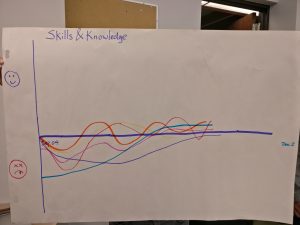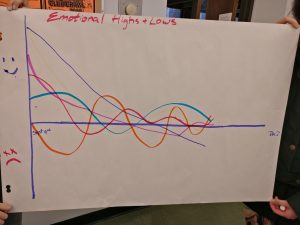Weekly Objectives and Achievements:
During this phase of our project, we aim to wrap up the collection phase of food assets and compile all our data in preparation to submit to Vancouver Coastal health to update the Food Asset Map. In the following weeks, we hope to begin working on our project infographic and presentation for a completion date of November 27-30.
| Objectives | Dates |
| Finish collecting data and inputting into current Food Asset Map excel document and send to Teya at Vancouver Coastal health | Nov. 1- 7 |
| Plan on a date to trial map in Renfrew Collingwood Neighbourhood | Nov. 2 |
| Aim to trial map with community members | Nov. 8,10 |
| Reevaluate project proposal and start working on project info-graphic and final report | Nov. 2- ongoing |
Ongoing Objectives:
Keep up to date on group chats and upcoming assignment due dates. We hope to follow the above schedule to obtain results from community members and compile their results into our infographic and final report.
Achievements as of Nov. 2:
Data collection portion of Vancouver Food Assets is mostly complete.
Project Proposal has been reviewed and condensed in preparation for project infographic.
Discussion has begun with our community partner in regards to facilitation of map trailing.
Moments of Significant Change Workshop (Nov. 2, 2016):


The workshop was a valuable experience for our group to look into each other’s state of knowledge, skills, and mental states. It was certainly an eye opening activity to find similar patterns in the group. We all had similar tendencies in terms of emotional levels, with a gradual decrease over the term with projects, tests and other commitments, however we agreed that nearing the end, we should see an overall increase in emotional levels. It was also rather nice to see that other groups have had a similar outlook in terms of emotional outlook for the course. During the individual portion, we all found it rather difficult to specifically label points of change, as they were more gradual changes. These changes in both graphs were represented by a series of events as we worked our way through deadlines and setbacks.
Although we cannot say for sure how these graphs will change in the next month, it appears that the variation in emotional ups and downs seems to be tapering off which may be due to a slightly clearer objective as we close in on our final presentation and report. As we come close to the next deadline, we should expect some uncertainty, which we have dealt with as a group before with previous assignments. With the next part of our project encompassing community engagement, in the form of trailing the Vancouver Food Asset Map in the Renfrew-Collingwood Neighbourhood, there may be some moments of significant change for both our graphs during and after our map trialing. However, with uncertainty, brings the opportunity for learning as Lee S. Schulman in the article “Pedagogies of Uncertainty”, these moments of uncertainty emulate the difficulties and hardships that we may face in our careers in the near future. This opportunity for us to have a first hand experience with the continuation of this project, we are able to exercise our abilities to cope with uncertainty to develop ourselves into professionals in our field (Shulman, 2005). We as a group have confidence that we will be able to overcome any unexpected challenges. With the help from this workshop, it reminded us that we will always have ups and downs which are beneficial for our overall development. We will continue to work towards finishing our project and discuss with each other should problems arise. Pointing out problems quickly can help us reach a resolution and better enable us to focus on the project.
A Graceful Dismount:
We have decided as a group that in order to finish off well on this project, we must be able to discuss our findings from both map data collection and community member feedback to establish the ability of the Vancouver Food Asset Map in helping those in need achieve food sovereignty. We must define specific terms and articulate who in fact is “in need” for this asset map. We aim to gather accurate information through online resources and analyzing community member feedback through an ethically designed anonymous questionnaire to determine our target audience and usability of the map. For our next task, we are organizing and interpreting the quantitative and qualitative data in order to create an info-graphic to articulate our findings, as well as a final report to summarize our whole experience with this project.
References:
Shulman, L. S. (2005). Pedagogies of Uncertainty. Liberal Education, 91(2), 18–25. Retrieved from http://files.eric.ed.gov/fulltext/EJ697350.pdf